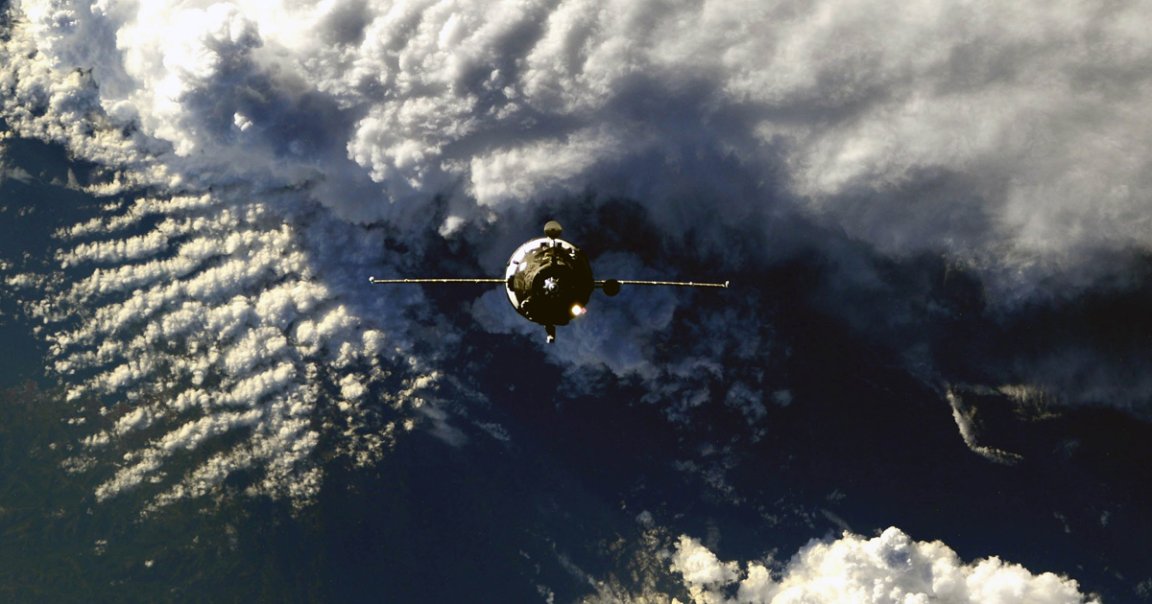
Burning Up
After spending seven months attached to the International Space Station, Russian cargo spacecraft Progress 76P MS-15 dropped back down to Earth on Tuesday to burn up in the atmosphere.
It’s a spectacular event that was caught on camera by JAXA astronaut Soichi Noguchi, who traveled to the space station aboard a SpaceX Crew Dragon in November.
“Farewell, Progress 76P MS-15!” the Japanese astronaut wrote in a tweet accompanying the photo. “Russian cargo spacecraft undocked from ISS, and successfully burned up.”
Resupply
MS-15 launched to the ISS back in July in record time, taking just three hours and 18 minutes to make the trip. The robotic spacecraft brought supplies and scientific equipment to the station.
Some of the cargo ship’s parts will actually make it back down to Earth after its fiery reentry. MS-15’s “non-combustible fragments” will sink into a “non-navigable region of the South Pacific,” according to a Roscosmos statement.
Next Up
Russia’s next cargo vehicle, called MS-16 and loaded up with 600 kilograms of fuel, 420 liters of drinking water, and 1,400 kilograms of scientific equipment and materials, is already being prepared for a February 15 launch, according to the Russian space agency.
MS-16 will also carry “a set of adhesive bond reinforced linings” to seal leaks that were spotted in the Russian Zvezda module of the space station last year.
READ MORE: A Russian ‘space truck’ just burst into flames on purpose and the photo is amazing
More on Russia’s launches:RUSSIA LAUNCHES FINAL SOYUZ WITH NASA ASTRONAUTS ABOARD